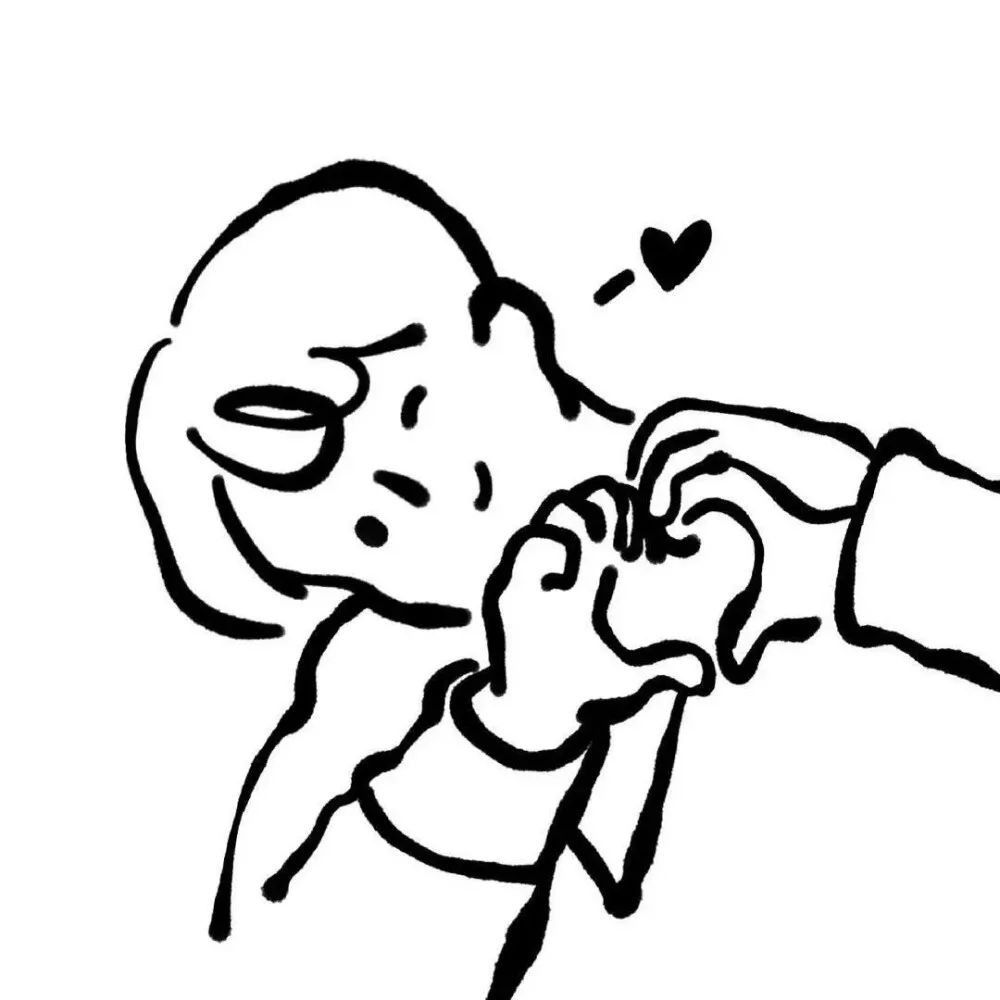 cloud123
cloud123-
在美国 get 这个动词用的很多, 可惜一般台湾的学生对于这个动词所知有限, 大概只知道 get up, get off 这几个简单的用法, 其实从 get 变化出来的动词何其繁多, 它也是口语英语中很重要的一个部份, 我整理出一些常用但大家可能不熟悉的用法分享给大家。
例如要是人家要发传单给你, 而你手上已经有一张了, 你该怎么回答? 最近我就遇到这种情况, 于是我就照著中文的意思说: I already have one. 发传单的人楞了一下, 说 You got it? 后来想想, 似乎在这种情况下只要说 I got it. 就可以了, 而不需说那么长又那么绕舌的一句: “I already have one.”
1. Get out!
太离谱了吧。!
Get out 有二个不同的解释, 一个就是指滚开的意思, 例如你在作事情作得很烦, 可是偏偏有人不识相一直跑来找你聊天, 你就可以对他说, “Get out of here.” 或是只讲 “Get out.” 另外 get out 也有 I don"t believe you! 的意思。 比如说上次我跟一个老美说我同学刚毕业就找了一个年薪七万的工作, 他就跟我说, “Get out.” 表示他一点都不相信我说的话。
2. Ten bucks to get in.
入场费是十元。
记得我第一次去美国的 pub 的时候, 我想问门票是多少钱, 于是我就问 How much is the admission fee? 听来是不是怪怪的? 后来多跟老美接触, 我才了解他们就直接用 get in 来表达这个意思, 如 How much to get in? 就是门票多少钱? 而 Ten bucks to get in 就是说门票是十元。
3. We both agree we"ll get around to it!
我们都同意我们迟早会去做这件事。
Get around to it 是个很有用的片语, 它说的是一件你想去做, 但不是很紧急的事, 等你有空时才要去做。 比如说有人跟你介绍有一个餐厅很棒很棒, 说的天花乱坠, 问你想不想去, 你就可以回答 “I will get around to it.” 意谓著等我有时间我会去看看。 值的注意的是这个 to 是介系词, 所以如果后面要接动词必须改成 V-ing , 如 “I"ll get around to putting the photos in the album.” 就是说等我有空我会把相片放在相簿里。
4. Does he ever get tired?
他有没有觉得累过啊?
这句对话是出自有一次我去老美家做客时, 他们家有个小 baby 跑来跑去, 一付精力充沛的样子, 我的朋友不禁感叹地问, Does he ever get tired? get tired 就是觉的累的意思, 我们的直觉反应可能会说 feel tired 但这种说法并不如 get tired 来的常见。 例如打球时你觉得累了。 你就可以说, “I am getting tired!” 我开始觉得累了。
5. I never get caught.
我从来没被警察抓过。
第一次听人家这么说时, 因为我不知道可以这么说, 所以我一直把它理解成 get cold. 我得到感冒的意思, 所以各位就可以想像再下来会发生什么好笑的事。 这句话也就等于 “I never get a ticket.” 另外, get caught 也可以指被雨淋到了, 比如说外面正下著大雨, 你一回家就有人问你, “Did you get caught in the rain?” 就是问你有没有被雨淋湿。
曾经有人问我, 我昨天淋雨走路回家怎么翻, 我的直觉反应就是, “I got caught in the rain on my way home yesterday.” 但这句话听来不对, 因为 get caught in the rain 是那种意外被雨淋到, 并非你自愿要淋雨的, 后来这句话我问老美, 原来答案是, “I walked home in the rain yesterday.” 听来的确顺多了。
6. You will get used to it!
你会习惯它的。
Get used to 是一个很常用的片语, 表示习惯于某件事, 例如我说美国的天气很乾燥, 你就可以回答我 “You will get used to it!” 要注意的是, get used to 跟 used to 是截然不同的意思, used to 是说过去习惯如何如何, 例如, “I used to get up at 5:30.” 言下之意就是你过去都是 5:30 起床 (当兵的时候), 但那已经是过去式了。
7. I need some time to get my stuffs together.
我需要一点时间把我的数据整理一下。
刚来美国时总是不知道把我的数据“整理一下”该怎么说, 我一直想不出整理该用哪一个动词比较恰当。 后来在偶然的机会中听老美这么说 get my stuffs together. 我觉的这正是我们说的把数据整理一下的意思。 但是如果你坚持要用单一的动词来形容整理, 我想 organize 会是不错的选择。
另外我想补充的是 get together 并在一起 就是 meet,聚在一起意思例如, “Can we get together tonight?” 意思就是今晚我们可不可以碰面? 以前我把这个词误会成男女朋友的“在一起” 因为有一个老美问我 “Can we get together?” 我还以为他对我有意思。
8. Do you know how to get there?
你知不知道该怎么去那里?
这样的句子我们会习惯说 “Do you know how to go there?” 但是以我个人的经验, 老美比较喜欢用 get there. 这样说听来比较道地, 所以我现在也学会用 get there 代替 go there 了。
9. I got stuck!
我被困住了。
可以使用 Get stuck 的情况很多, 例如开车出门遇到大塞车, 你就可以说 “I got stuck in the traffic.” 或是双脚陷在烂泥中, 你也可以说 “I got stuck in the mud.” 或直接说 “I got stuck.”
10. Got you!
骗到你了吧!
比如说你说了一个笑话别人却信以为真, 你就可以很开心地说 Got you! 意思就是我骗到你了, 你上当了! 或者是去打球时你打了一个吊球别人没接到, 你也可以兴奋地大叫 “Got you.” 附带一提, 一般的人不会念成 “Got you.”, 他们会说成 “Gotcha!”
如果你曾仔细听过老美之间的对话, 我想你会发现, 越简单的动词用得越多。 老美尤其偏爱像是 get, make 或是 take 这几个简单的动词, 但是偏偏很多人都搞不清楚什么时候要用 get, 什么时候要用 take. 举个例子吧! 比如说你跟朋友约好了一起要去看表演, 你跟你朋友说, 你帮我拿一张票, 这个 “拿” 要用什么动词好呢? 是 take 吗? bring 吗? 还是 get ? 大家先想想看这个问题。
这一集要再来谈谈 get 这个字, 之前曾写过一篇关于 get 的笔记, 但我觉得没有抓到这个字的精髓, 所以再补写一篇。 我想 get 的用法实在太多太多了, 而且字典上市面多得是。 这里我想仅就一些我觉得容易混淆及一些大家可能不会想到这样用的用法作介绍。
1. I got a ticket for you.
我会帮你拿一张票。
如果你能正确地使用 get 当作这个句子的动词, 那么你的感觉还蛮正确的, 不然就是你已经偷看到了这次的主题了! ^___^ 通常一样东西原来不是你的, 而你获得了这样东西, 就要用 get. 例如你得到一样生日礼物, 你就可以说, “I got a present.” 或是你收到一封信, 这封信在你收到之前都不是你的, 所以你也可以用 get 当动词, 像是, “I got a letter from my sister.” (我收到我姐寄来的一封信。) 同样的, 就“拿一张票”这件事来讲, 这张票原来也不是你的, 所以你就要说, “I got a ticket.”
至于 take 和 bring 的意思是蛮接近的, 都是指去拿一件原来已经是属于你的东西, 但通常 take 是指“拿去”, bring 指“拿来”。 例如你说, “I will go home to take your ticket.” 就是说这张票你可能早就买好了, 你只不过要回家去拿而已。 同样的, 你说 “I will bring you the ticket.” 也是指这张票原来是你的, 你只不过是带来给人家而已。
最后补充一点, 另外还有一个字 fetch 它指的是指拿去又拿来, 例如你丢东西给狗去捡, 狗跑过去再把它捡回来这就是 fetch. 或是你去机场把人给接回来也可以用 fetch. 注意一下这几个字之间的区别。
2. Somebody get them the ball.
谁去帮他们捡个球吧。
有一次我们在宿舍外的草坪一边烤肉, 一边看人家在打沙滩排球, 结果有一次球出界, 滚到我们附近, 结果有一个老美看到了, 就说了, “Somebody get them the ball.” 我这时才恍然大悟, 原来捡球就用 get the ball 就好了。
而且大家有没有发现, 老美很喜欢用 get somebody something 这样的句型。 例如上一句, 我帮你拿一张票, 你也可以说成, “I got you a ticket.” 听来更是简洁有力。 这也正是老美最喜欢用的说法。
3. Can you get me out there.
你能不能带我去那边?
在最新的 007 电影 The World Is Never Enough 里, 当 007 发现输油管里被放了一颗炸弹的时候, 他就跟身边的人说, “Can you get me out there?” 就是说, 你能不能把我弄过去那里? 我想这个地方如果说成 take me out there 也可以, 但因为人家是 007 啊! 所以我们还是学他这样说, “Can you get me out there?” . 而且这样子讲意思比较像是把我 “弄” 过去那里, 而不单纯只是“带”我去那里。 像这种句子日常生活中常用到, 各位应该要多多熟记才是。
4. I"ll get back to you if I find something new.
如果我有什么新发现的话, 我会再回来找你。
如果单看中文, “我会回来找你。” 一定会有不少人蠢蠢欲动想要把它翻成, “I"ll come back to find you.” 那就大错特错了。 其实很简单, 只要翻成 “I"ll get back to you.” 不就完事了吗? 而且轻松愉快。 像这种用法, 特别喜欢用在要回答别人问题的时候。 只要你一时回答不出对方的问题, 你都可以说, “I"ll get back to you later.” (我晚点再告诉你。)
我们在讲电话的时候也常常用 get back to you. 例如二个人讲电话讲到没什么话讲了, 你说我明天再跟你聊吧, 这里就可以说, “I"ll get back to you tomorrow.” 或是比如说你打电话给人家, 人家不在, 你就可以在他的电话答录机上留言, “I"ll get back to you later.” (我晚点再找你。)
5. You"d better eat the soup before it gets cold.
你最好在汤变凉前把它喝了。
Get 本身有“从 A 状态变成 B 状态” 的意思在里面。 很多人一听到“变”成怎样, 心中的第一个跑出来的字就是 become. 其是在生活美语当中, 用 get 的机会远超过 become. 例如天色变暗就是用 “It gets dark.” 那如果是变得越来越怎么样, 则用现在进行式加上比较级, 例如天气变得越来越热, 你就可以说, “It"s getting hotter.” 记得有一次听广播, 有一个听众从迈阿密 (美国佛罗里达最南边的城市) 打电话进来, 他就跟主持人说, “When the weather is getting hotter, the chicks are getting hornier.” (当这里的天气越来越热, 这里的女孩也越来越骚。) 虽然是有点太那个, 但是我觉得还蛮有趣的。
6. Can I get you alone?
我能不能跟你单独处一会?
大家都有类似的经验吧? 在一个人声吵杂的环境当中, 你想要跟某人讲一些很重要的话, (也许是要“作”一些很重要的事。 Who knows?) 这时你就会说, “我们能不能单独谈谈?” 这句话英文怎么说? 想不到这么简单吧? 就是 “Can I get you alone?” 乾净俐落。 当然你也可以说, “Can we have a private moment?” 意思完全相同。
还有另一个情况也蛮常见的, 比如你跟人家说, 我能不能占用你一点点的时间, 你会怎么造句? 没想到老美也是用 get 就搞定了。 他们会说, “Can I get you a second?” 这句话也是很漂亮吧! 这些都是我在日常生活中跟老美学来的句子喔!
7. Tell everybody to get involved this activity.
告诉每个人都来参与这个活动。
大家分得清楚 join 跟 get involved 之间的区别吗? 我想这样讲各位可能会比较明白, join 就是所谓的“参加” 而 get involved 是所谓的 “参与”。 我想参加非参与, 参加是说成为某一个团体的新成员或是加入某一个活动, 而参与是指从事各项活动而言。 比如说社团现在有一个音乐会, 要请大家上台表演, 或是帮忙安排场地, 你就可以跟大家说, “Everybody please get involved.”
8. I hope everybody can get together on Sunday.
我希望大家星期天的时候大家可以聚一聚。
只要是几个人聚在一起就是 get together. 例如我们在作大型的 project 时, 老美就会说, “Let"s get together to discuss the topic this afternoon.” (我们大家下午聚一聚讨论这个主题。) 另外还有一次大家要一起去看美式足球赛, 可是现场人非常地多, 为了怕大家走散, 就有人说, “Everybody gets together.” (大家靠在一起, 不要走散了。)
Get something together 我也常听他们讲, 就是说把东西整理一下, 例如有人下午要上台作报告, 早上他就会说 “I have to get my stuff together.” 或是也可以说, “I have to organize my stuff.”
9. We are trying to get rid of the mice in this house.
我们试著要把屋里的老鼠除掉。
Get rid of 指的是除去某些另人很讨厌的东西, 或是很讨厌的人。 例如有人很烦, 你就可以说,“I will get rid of him.” 这句话昨天我去看一部电影 Stuart Little 时也听到一次, 就是他们家的猫 (Snowbell) 很讨厌 Stuart, 它就跟其它的猫说了, “I will get rid of that mouse.”
10. I really got a kick out of bungee jumping.
我从高空弹跳中得到快感。
Kick 除了一般大家所熟知的意思: “踢” 之外, 在口语的英文中也有兴奋, 快感的意思。 所以老美常会说, “I got a kick out of something.” 或是 “I got a kick from something.” 就是说他对这件事情感到十分兴奋。 比方说高空弹跳 (bungee jumping) 吧! 那么贵又那么可怕, 你问人家为什么还喜欢去玩, 别人可能就会说, “I don"t know. I just got a kick out of it.” (我也不知道, 我就是从其中得到快感。) 同样地, 这句话也可以说成, “I"m thrilled.” 或是 “I got the groove.”
 小菜G
小菜G-
英语中,“GET”作动词时,它不仅内涵非常丰富,而且其用法颇为复杂。它是一个万能动词,备受英语人士青睐。关于GET的使用频率和语体风格,英国著名词汇专家皮尔索尔(J. Pearsall)女士在1998年出版的《新牛津英语词典》中特地指出:GET是五个最常用的英语动词之一,但它常用于非正式的口语或书面语中。为了叙述方便,下面从词性功能的角度,简要归纳一下GET的语义及语用特点,以便英语学习者能正确掌握这一万能动词的主要用法。

一、及物动词
及物动词get的用法很多,但在每种搭配中get的意义是不完全相同的。
1.用于get+sb(sth);意为“叫来某人(得到某物)”。例如:
Please go and get him. [请你去把他叫来。]
She got high marks in the final examination. [她在期末考试中得了高分。]
2.用于get+sb+sth/get+sth+for sb;意为“为某人弄到某物”。例如:
I"ll get you a drink. [我去个你拿杯饮料来。]
Could you get a school timetable for me? [你能帮我弄张课程表吗?]
3.用于“get+名词+宾补”,该宾语补足语可以是:
1)不定式;意为“使……做……”(具有使役性)。例如:
You must get them to come here. [你必须让他们来这里。]
He couldn"t get the car to start and went by bus. [他因无法发动车子,所以就乘公共汽车去。]
2)现在分词;意为“使……(开始)起来”或处于某种状态。例如:
What he said got us thinking. [他说话使我们思考起来。]
Can you get the machine running? [你能把这机器发动起来吗? ]
3)过去分词;其中的过去分词表示被动关系。例如:
We get our milk delivered. [我们订的牛奶送到了。]
You must get the work done by Friday. [你必须最迟在星期五以前把工作做完。]
值得注意的是,这种被动关系有时可能表示某种遭遇;这主要取决于过去分词的含义。例如:
He got his watch stolen. [他的手表被偷了。]
Ina got her fingers caught in the door. [艾娜的手指让门给夹住了。]
另外,“get sth done”和“have sth done”在语义及语用上都有区别;前者通常表示动作让别人完成,后者通常表示动作由自己完成。例如:
She got her hair cut yesterday. [她昨天剪了头发(别人剪的)。]
A week ago I had a hundred dollars saved. [一个星期前我节省了一百美元(自己省的)。]
4)形容词;意为“使……(变成某种状态)”。例如:
What he said got us angry. [他说的话让我们很生气。]
We"ve got everything ready. [我们已把一切都准备好了。]
二、不及物动词
不及物动词get的用法也很多,不同的搭配有不同的意义。
1.用于“get+形容词”;get相当于系动词,构成系表结构说明主语的状况、性质、特征等情况。例如:
She got sick. [她生病了。]
Please don"t get angry. [请不要生气。]
值得一提的是,英国著名语法专家斯旺(M. Swan)先生在1980年出版的专著《实用英语惯用法》中指出:get不能与表示颜色的形容词构成系表结构。例如不说:
* Leaves get brown.
但可以把get改为go:Leaves go brown.[树叶变棕色。]
另外,get用进行时态来表示状态的改变。例如:
The weather is getting cold. [天气逐渐变冷。]
I"m getting very deaf, you know. [你知道,我的耳朵越来越聋了。]
用进行时态的get还可以与形容词的比较级连用,强调渐进过程。例如:
The things are getting worse. [事情变更糟了。]
Our life is getting better and better. [我们的生活是越来越好了。]
2.用于“get+副词”,表示位置的变换;其中一些已成为成语。例如:
Where did you get on? [你上哪儿去了?]
The news soon got abroad. [这消息很快就传开了。]
3.用于“get+不定式”(构成复合谓语),表示一种状态的变化。例如:
How did you get to be captain? [你怎么当上队长的?]
I"ll never get to understand him. [我永远不会理解他。]
4.用于“get+现在分词”;这种用法主要见于美国英语。例如:
We"d better get going, I suppose. [我想我们最好赶紧动身。]
They got talking and didn"t notice the time. [他们谈了起来并没有注意时间。]
5.用于“get+过去分词”;这时get表示的是相当于become(即系动词)的意思,后面的过去分词属形容词范畴(即形容词化的过去分词),作主语补语。例如:
He got very worried. [他变得很担心。]
She gets easily excited. [她很容易激动。]
三、助动词
get作为助动词,它与过去分词构成被动语态(即Get-Passive)。中国著名语言学家周海中先生在1990年发表的论文《Get-Passive研究》中指出:目前,Get-Passive的使用还没有Be-Passive那么广泛,一般限于口语和非正式书面语;然而,这一被动语态却有着用得愈来愈多的趋势,这种语言现象很值得我们重视和研究。
 慧慧
慧慧-
get get[gZt;
^єt](got[g@t; )t]; got,(美)got.ten[`g@t; ")tn];
get.ting)及物动词A 1 收到a. [由…]收到 <信、礼物、薪资等> ; (经要求、恳求) 获得
<许可、答覆等> ,得到 [from,out of]~ a doll for Christmas得到一个玩偶作为圣诞礼物~ help from one"s friends从朋友们得到帮助→ get no CHANGE out of a personThis room doesn"t ~ much sunshine.这房间晒不到什么阳光b. [自…]得到 <性情、想法等> [from]She ~s her good looks from her mother.她的美貌系得自母亲的遗传Where did you ~ that idea (from)?.你从哪里得到那主意?c. [由…]接受 <知识、教育等> ,学得[from]~ a good education (from him) (从他) 接受良好的教育d.(得以) …,给…,被…~ some sleep小睡~ a promotion晋升Go and ~ a haircut.去 (让人) 理发吧He got a scolding for being late.他因迟到而被骂2 得到【同义字】get 得到,与有无意志或是否努力无关gain 努力或逐渐地取得对自己有益之物或所需obtain 努力工作或勤奋而得到所需之物acquire 长期努力而获得a. (努力) [自…]得到…,把…弄到手; 挣得,赚得<钱等>; 赢得,博得,获得
<奖、名誉、知识等> [from]~ one"s living谋生She got an A in [on] the exam.她考试得 A [甲]I don"t ~ much from his lectures.我从他的讲课所获不多b. 得到 <结果、答案等> ,得<分>He got a different total from me.他所得的合计和我所得的不同They got two touch downs.他们得了两个触地得分(美式足球)3 得到a. [在…]买<物>; 购得[at]I ~ bread at that store.我在那家商店买面包Where did you ~ that hat?.你在哪儿买到那顶帽子?I got this camera cheap.我便宜地买到这架照相机b. 为<人>买 [取得] <物>; [为人]买 [取得]
<物>[for]He got me a job [a taxi].他为我找到一个工作 [叫了一部计程车]Will you ~ me a ticket ?= Will you ~ a ticket
for me?.请你为我买一张票好吗?I got her a doll for Christmas.我买给她一个玩偶作为圣诞礼物He got himself a car.他 (给他自己) 买了一部汽车4 取来a. [自…]取来…,拿来[from]G~ your hat.去拿你的帽子I"ll come and ~ you from the station.我会去车站接你(我会去把你从车站接来)b. 为<人>取 [拿,带] 来<物>; [为人]取 [拿,带]
来<物>[for]Please ~ me a glass of water.= Please ~ a glass
of water for me.请去拿一杯水来给我Such conduct will ~ him a bad name.这样的行为会给他带来坏名声5 捉住,捕获 :a. 捕获 <鱼等> ; 抓住<人等>,捉到We chased him until we got him.我们追他直到捉到他为止b. 赶上<火车等>I just got the train.我刚刚赶上了那班火车6 (凭智力或感觉) 掌握,摸清a. 学会…,学得~ a poem by heart默记一首诗Have you got your grammar lesson
perfectly?.你已完全了解文法了吗?b. (口语)了解…,明白…,懂I ~ the idea [the point of the joke].我明白这是怎么一回事 [这个笑话的主旨]Do you ~ me?.你明白我的话吗?I got you.我懂你的意思Did you ~ what he was talking about?.你了解他在谈什么吗?Don"t ~ me wrong.别误解我的意思→ GET it (2).c. (口语)听清楚…,听懂,听见I"m sorry I didn"t ~ your name.对不起,我没听清楚你的名字d. (画、歌等) 巧妙地重现…You haven"t quite got the tune.你还没完全把音调弄对e.(俚)注视…G~ the look on his face!.看他脸上的表情!7 将<人、物>拿[带]去 (某地方、位置) ,移动,搬运,将<人、物>
(从某地方、位置) 拿[带]去,移动,搬运~ a person home [to hospital]把某人带回家 [带去医院]I can"t ~ all these books into the bag.我没法子把这些书统统放进袋子里G~ that bicycle out of the street.把那自行车从街道上移开~ a desk upstairs [downstairs]把书桌搬到楼上 [到楼下]Where does that ~ us?.那 (对我们) 有什么效果(cf. GET somewhere)8 a. 得<病>,生,感染上~ a cold患感冒b. [自…]感染上<病>[from]She got mumps from her brother.她从她弟弟感染了流行性腮腺炎c. (口语)迷上,沾染,醉心于<思想等>,对 <毒品等> 上瘾,
<毒品等> 使…上瘾~ socialism醉心于社会主义~ religion开始信教,入教9a. 受,蒙受,遭,挨,吃 <打击、败北、失败、败战、亏>~ a blow [a whipping]挨一拳 [鞭打]I got a broken arm.我把手臂弄断了He got a bad bruise on the back.他背部受了严重的碰伤b. 做为处罚受…,被处… (刑) ,被判He got six months (in prison).他被判六个月 (徒刑)He got what was coming to him.他受到应得的报应10 a. [从收音机、电视上] 收听,收看 <广播电台、电视台、
 大鱼炖火锅
大鱼炖火锅-
Get
的用法
Get
的用法很多,但在每种搭配中
get
的意义是不完全相同的。大多数情况下,
get
是及
物动词,有时它也可以起到连系动词的作用。
1.get+sb(sth)
叫来某人(弄到事物)
Please go and get him.
去把他叫来。
She got high marks in the final examination.
2. get+sb+sth / get+sth+for sb
为某人弄到事物
Will you please get me a ticket for the football match?
请给我弄张足球票好吗?
Could you get a school timetable for me?
你能帮我弄张课程表吗?
He got me some beautiful postcards.
他帮我弄到了一些漂亮的明信片。
3. get+sb+to do
使某人做某事
My idea is that we should get a porter to carry our luggage.
我的想法是我们得请个搬运工来
搬行李。
4. get+sb(sth)+doing
让某人(物)行动起来
My duty was to get the four fo us studying the subjects.
我的责任是使我们四个人研究这个主
题。
4. get+sth+adj.
使某物处于某种状态
She got her school clothes dirty
.
她把校服弄脏了。
5. get+adj.(get
是连系动词
)
什么变得怎么样
In summer it doesn
"
t get dark until after eight o
"
clock.
在夏天,
直到八点过后,
天色才会暗下
来。
Our nation is getting more and more powerful.
6. get+sth+done
使某事被做
Y
ou must get your homework done before you watch TV
.
你看电视前务必把家庭作业做完。
Y
ou
"
d better go and get you hair cut.
你最好去理个发。
7. get+done
变成某种状态(
get
是连系动词)
Y
our hand will get bumt if you are not careful.
如果你不小心点,你的手会被烫伤的。
Don
"
t get caught in the rain.
被遭雨淋了
 wpBeta
wpBeta-
get的搭配很多,但在每种搭配中get的意义是不完全相同的。大多数情况下,get是及物动词,有时它也可以起连系动词的作用。
get vt., vi got getting
得到,收到;经历 Did you get my telegram?你收到我的电报了吗?
Did they get any compensation when they were dismissed from their jobs?
他们被解雇时有没有得到赔偿费?
获得,取得 I must get some fruit in the market我得在市场上买点水果。
I"ll get sth. to eat before I got out.我出去之前要找点东西吃。
取来;处理 Don"t answer the telephone. I"ll get it.别接电话,我来听。
开始 to get customers开始营业 Get moving!走!
发动 I"ll get the car going.我要使车发动起来。
变得,变成 The food"s getting cold.菜凉了。
This skirt is getting dirty; it needs washing."这件短裙脏了,该洗一洗了。"
成为;被 to get trapped 被困
弄;使;促使 I can"t get them all in.我不能把他们都弄进去。
说服 Get him to see a doctor.劝他去找医生看看。
到达,抵达 She got there at six.她六点钟到达那里。
When we got to the station, the bus was waiting.当我们到达车站时,汽车还在等着。
放进,弄进;取出,移出 Get that cat out of the house!把那猫从屋里赶出去!
成功;达到… If I get to see him, I"ll ask him about it.如果我见到他,我会问他那件事。
患(病),得(病) He"s got a bad cold.他得了重感冒。
了解;听懂;明白 Do you get me?你明白我的意思吗?
Did you get the drift of the dispute? 你搞清楚争论的中心了吗?
困扰;使烦恼;刺激 That gets me where it hurts.那句话刺伤了我。
击中 I got her with a potato.我用马铃薯打中了她。
生育,生产
击败对手,得胜 I"ll get him on that point.就那一点来说我会赢他。
成功;进展;有效果 My son is really getting somewhere.我儿子确实在进步。
惯常用法:
1.get+sb.(sth.)叫来某人,弄到事物. Please go and get him.去把他叫来。
She got high marks in the final examination.
2.get+sb.+st.为某人弄到事物
Will you please get me a ticket for the football match?请给我弄张足球赛票好吗?
He got me some beautiful postcards.他大帮我弄到一些漂亮的明信片。
3.get+sth.+adj.使某物处于某种状态。
We have got everything ready for the sports meet.我们已经为运动会做好了一切准备。
She got her school clothes dirty.她把校服弄脏了。
4.get+sth.+done使某事被做
You must get your homework done before you watch TV.你看电视前务必把家庭作业完成。
You"d better go and get your hair cut.你最好去理个发。
5.get+sb.(sth.)+doing让某人(物)行动起来。
My duty was to get the four of us studying the subject.我的责任是使我们四个人研究这个主题。
Who can get the machine running?谁能启动这台机器?
6.get+sb.+to do使某人做某事
My idea is that we should get a porter to carry our luggage.我的想法是我们得请个搬运工来搬运行李。
7.get+sth.+for sb.替某人弄到某物
Could you get a school timetable for me?你能帮我弄张课程表吗?
8.get+adj.(get是连系动词)译成“变得”
In summer it doesn"t get dark until after eight o"clock.夏天,直到八点过后,天色才暗下来。
Our nation is getting more and more powerful.我们的国家变得越来越强大。
9.get+done变成某种状态(get是连系动词)
Your hand will get burnt if you are not careful.如果你不小心点,你的手会被烫伤的。
Don"t get caught in the rain.别遭雨淋了。
常用词组:
get across被理解;使人了解
Did your speech get across to the crowd?你的演说听众理解吗? (= get over)
get around避开,逃避to get around the tax laws逃避纳税 (= get round)
get away with逃避惩罚
get by度日;生活to get by on a small income靠微薄的收入生活
尚可;勉强及格Your work will just get by.你的工作尚能过得去。
get down(小孩)饭后离开餐桌; 困难地吞下
Come on, get the pill down.来,把药片吞下去。
写下,记下; 使疲倦、生病或不安
The bad weather is getting me down.这坏天气使我毫无精神。
get down to认真地静下心(工作)to get down to work静下心来工作
get home中肯;被了解(不愉快的事) (= go home)
get off(与with, together连用)结交异性;与异性发生性关系
get on相处融洽; 变迟;变老 Time is getting on.时间已晚。
继续 Get on with your work!继续工作吧。
快;催促; 成功 to get on in one"s job在事业上取得成功
get on for(时间、年纪、距离)接近,迈进, 快到She is getting on for fifty.她年近50了。
get onto与…接触; 得知,获悉The police finally got onto him.警方终于得知了他的欺骗行为。
被任命为;被选为; 开始讨论或从事
How did we get onto that subject?我们是怎么谈到那个题目的?
登机;骑上;爬上 I get onto the train every morning at 6:30.我每天早晨六点半上火车。
get out of(使)逃避;避免;摆脱
She tried to get out of helping her mother. 她尽量逃避帮助她的妈妈。
放弃 to get out of a bad habit改掉坏习惯
使说出The police got the truth out of her.警察迫使她说出真相。
获得,得到 How much did he get out of the deal?那笔交易他获得了多少钱?
get over做完;结束;熬过You"ll be glad to get your operation over.手术做完了你一定会高兴的。
使人了解或接受 ; 痊愈,康复
It took me a long time to get over my cold.我的感冒过了很久才好。
克服 Can we get over this difficulty?我们能克服这个困难吗?
I can"t/ couldn"t get over.我十分惊讶。
get round避开;逃避; 说服,争取(某人);旅行
get round to找时间做
get through接通(电话);让人了解Get it through to him that he must rest.要让他了解他该休息了。
办完;完成;了结; (使议案在议会)通过
get together相聚,聚会When can we get together?我们什么时候聚会?
get up(使)起床;起身He is still asleep, he hasn"t got up.他还在睡觉,没起床。
(病后)起床;(风、火等)变得 猛烈,增强;筹办;准备;演出to get up a party筹备一个舞会
研究 to get up a subject研究一个学科
穿起;装束 She has got up in a new costume.她穿起一身新装。
增加;提高 to get up speed 增加速度(与to连用)到达
What page have you got up to?你读到第几页了?
在墙上乱涂乱画
近义词: acquire become bring bring about fetch gain grow incur
induce influence obtain persuade receive retrieve secure turn
反义词: lose
满意的话请尽快采纳,谢谢!
 左迁
左迁-
get
vt.
1. 获得;得到;赢得
He gets first prize in the listening contest.
他得到听力比赛第一名。
2. 挣到;买到
I got a new coat in that store last week.
上礼拜我在那家店买了一件新外套。
3. 捉住,捕获
The police got the thief.
警察捉住了贼。
4. (不用被动式)收到,接到
I didn"t get any answer from him.
我没有收到他的回信。
5. 使得到;为...弄到;为...买[O1]
I"ll get you something to eat.
我将给你弄点吃的。
6. 使成为或处于(某种状态)[O8][O7][O]
The climb got all of us tired.
爬山使我们都累了。
7. 使运行,使工作[O4]
Can you get the machine running?
你能把这机器发动起来吗?
8. 为...接通...[O1]
Could you get me Hong Kong, please.
请给我接通香港。
9. 收听到;收看到
We can get 18 channels on TV.
我们可以收看到十八个频道的电视节目。
10. 理解;听清楚;记住;学会
Don"t get me wrong.
不要误会我的意思。
11. 把...难倒
Your attitude gets me.
你的态度令我莫名其妙。
12. 说服;使得[O2]
I got him to stay for the night.
我说服他留下过夜。
13. 取出;带走;移开[O]
We must get the rock out of the path.
我们必须把石头从路上搬走。
14. 计算出;得出
He finally got the answer to the algebra problem.
他终于算出了这道代数题的答案。
15. 赶上;乘到(车等)
We must get the ten o"clock plane.
我们一定要赶上十点的飞机。
16. (不用被动式)感染上;患
Everyone in our room got the flu.
我们房间里的所有人都患了流感。
17. 击中;打死
Where did the bullet get him?
子弹击中他什么部位?
vi.
1. 到达[Q]
When do you get to Hong Kong?
你什么时候到香港?
2. 变成;成为[L]
It"s getting cold.
天气变冷。
3. 有可能,有机会[+to-v]
He never gets to go to school.
他从来没有机会上学。
4. 开始[+v-ing]
We"d better get going.
我们最好现在就走。
5. 被...[+v-ed]
He"ll get punished if he goes on like this.
他再这样下去,一定会受到惩罚的。
 蓓蓓
蓓蓓-
get over连起来表示“熬过来,从某事恢复过来”的时候,只能说get over it.
这不属于“介词后面是代词则前置”的情况。而是属于和look ater her/him/it一样的情况,不能说look it after,因为look after是不能分开的,连在一起才表示“照看”的意思。
get over sth./sb.也是这样的动词词组,意思是“从疾病/震惊/ 断绝关系等中恢复过来”;如:He"s just broke up with his girlfriend.But don"t worry,he"ll get over it——sooner or later.(他刚和女友分手了,不过别担心,他会想开的——迟早的事。)
还有一种情况作get sth. over ,有两种解释:向某人解释清楚(+to sb.); 完成,结束令人不快但免不了的事(get sth. over with.)。这种时候,突出的是over的含义“完全,结束”。
所以要结合get over在具体句式和上下文的意义来决定。
 陶小凡
陶小凡-
嗯⊙∀⊙!
上线说
 okok云
okok云-
下面两位大神对。但有一点特别注意:
get如果用在造句是数量(考试分数)中是不具体用got具体用gets。如:She got high marks on every exam.她每次考试都得到高分(不够具体)另一句:She gets number one marks on every exam.她每次考试都得到第一(够具体)
